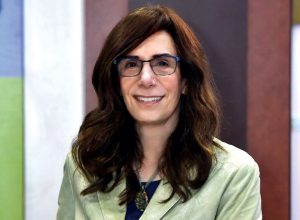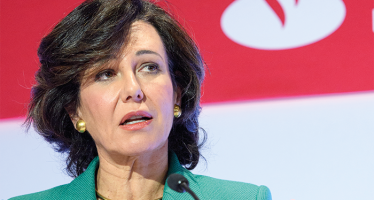Judy Faulkner: From Basement Beginnings… to a Self-made Billionaire

CEO and founder of Epic Systems: Judy Faulkner
Judy Faulkner is the hands-on programmer who pioneered the concept of patient-centric digital medical records in the US.
Faulkner taught herself the basics of coding in just one week during her undergraduate years — and went on to become a computer science professor. It was during that time, in the mid-1970s, that she had the stroke of inspiration that would lead to the founding of Epic Systems.
Distracted and daydreaming, she was suddenly hit by an idea. “I remember running into the kitchen, grabbing a pad of paper and just writing code, code, code, code,” she said in a New York Times interview.
In a Wisconsin basement in 1979, Faulkner launched Epic Systems with “one-and-a-half employees”. Today, the company resides on a 1,100-acre countryside campus and employs nearly 10,000 people. Epic reported revenues of $2.7bn in 2018, and Forbes estimates Faulkner’s personal wealth to be nearly double that.
Faulkner is a skilled mathematician and an astute entrepreneur. In the ‘70s, healthcare providers were using specialised programmes to track patients’ electronic health records (EHRs). But the systems were hospital- or practice-specific, and vital information was often lost over the course of treatment. Epic Systems, originally called Human Services Computing, was created as an ecosystem of health data that orbits the patient over a lifespan.
The company develops software solutions for hospitals, clinics and speciality practices. Its software suite can help speed-up revenue cycles, with streamlined paperless payment systems and insurance management. With Epic solutions, doctors can use AI-backed insights that enhance decision-making or introduce telehealth advancements for patient care.
The patient is at the heart of everything Epic does, and Faulkner ensures that the engineers grasp the seriousness — and responsibility — of that charge. She dispatches her team on immersion trips to operating rooms (ORs) across the US, where they witness the real-life application and impact of their developments.
“You might faint,” she said (it has happened), “but you watch the OR to see how our can software do better. How do we make it better? How do we get feedback?”
Engineers in this high-stakes field commit to gruelling schedules to ensure every line of code is correct. Epic’s sprawling campus was designed to promote productivity and creativity. Workers have offices conducive to uninterrupted focus, and windows fill the buildings with natural light. The workplace is full of whimsical features, such as an illuminated “intergalactic hallway”, an Indiana Jones-style tunnel, a treehouse with a swing bridge and a Star Wars-themed conference room. Workers can expect an additional perk after five years of service: a one-month sabbatical, with round-trip airfares for two to a destination of their choice, plus per diems for food and accommodation. The offer is extended again after each five-year block of service.
Epic is employee-owned and developer-led. Since its start over 40 years ago, the company has grown without the benefit — or burden — of venture capital or private equity. Faulkner has insisted on developing all Epic software in-house.
“If you are publicly traded, then your legal fiduciary duty is to increase shareholder value,” Faulkner told Healthcare Transformation. “We think our duty is to keep patients healthy, keep healthcare organisations strong, and keep clinicians happy.”
The Epic platform currently holds the EHRs of more than 250m patients. Faulkner is excited about what that huge data repository could mean for the future of evidence-based medicine: “We’re going to be able to make much more informed decisions and have much more insight into the long-term effects of what we do.”
But the company and its CEO have taken flak for the stance taken against recent US legislation aimed at implementing interoperability standards. Critics accuse Faulkner of attacking the federal rule to maintain a monopolistic hold on US healthcare data. She says her motivation is more altruistic.
“Studies have shown that most of the mobile health apps resell or share the data with others, and that’s dangerous,” she warns. “When patient data goes to an app from a health system, family members’ data will go over too. There is no way to get that out.”
Faulkner acknowledges that the legislation contains good elements, but insists that some things — such as the removal of IP protection for screens and algorithms — should be fixed before it is enacted.
You may have an interest in also reading…
Blythe Masters: The Risks of Spreading the Risk
Out of a tragic oil spill came forth a new financial instrument: The credit default swap – to some a
Pope Benedict’s Heroic Decision
Pope Emeritus Benedict, elected by the cardinals in 2005, resigned his office effective February 28th 2013. And as you will
Ana Botín: Reshaping the Financial Universe
The first woman to lead a major global financial services provider, Ana Botín remains one of only six women at


















































































